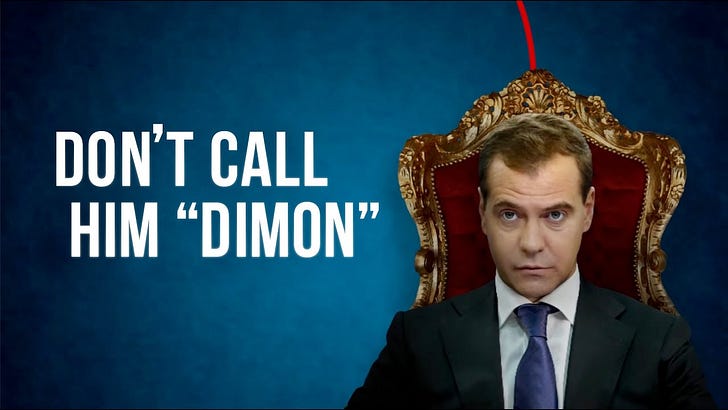A year ago I was shocked but not surprised that Alexei Navalny died in a Siberian prison. He was 47 years old. What is surprising is that he’d lived even that long. He had nearly died in 2000 after being poisoned before a flight from Tomsk to Moscow. He was poisoned with a nerve agent that had been used in other political assassinations by the FSB. After he became ill, he was airlifted to Berlin for specialized treatment. Navalny could have chosen to remain in exile—a nearly successful murder attempt might permanently frighten away most people. I wouldn’t be brave enough to come back after that.
After his poisoning, Nevalny started writing a memoir, Patriot, about his life as a pro-democracy, anti-corruption activist. He was still in Germany when he wrote that first part of the memoir—the tone is much lighter and even occasionally funny in these sections than in the latter sections. He was a free man when he wrote the beginning.
As soon as he returned to Russia in 2021 he was immediately arrested. The rest of the book consists of actual prison writings. He writes about the many humiliations he suffers as well as the deliberately kafkaesque bureaucratic miseries he endures.
But what I found the most intersting was to learn about how he fought Putin and Putin’s gang. His technique was basically journalistic—his hope was to inspire a democratic movement by pointing out how insanely corrupt Putin and his lieutenants are. Their best known anti-corruption expose was Он вам не Димон which is usually translated as Don’t Call Him Dimon. This was about Dmitry Medvedev, who was president of Russia back when Putin was still pretending to be an elected leader who followed laws. Putin essentially permitted his loyal puppet Medvedev to sit in the big chair for a few years. Nevalny’s organization, the Anti-Corruption Foundation, secretly gathered information about who was purchasing Medvedev’s fancy sneakers for him. It seems trivial, but that was the snowball that started this avalanche of a corruption investigation. Once they figured who was straw purchasing Medvedev’s sneakers, they determined that Medvedev owned an amazing portfoilio of billion ruble properties through a string of non-profit organizations, and that the non-profit organizations had been “given” these properties by various oligarchs. In short, they were bribes to Medvedyev. The Anti-Corruption Foundation used drones to took staggering photos of these palaces. The video dropped on YouTube in 2017.
The drama of Nevalny’s poisoning and the grim reality of life in prison are what many will take away from Patriot. I certainly did, but I very much enjoyed hearing about Nevalny’s creative strategies of resistance. But another thing I draw from this book is despair. Nevalny was a vigorous and clever freedom fighter. His actions were very successful. Tens of millions of Russians have watched Don’t Call Him Dimon. He and his compatriots fought for years. But I can’t forget that Putin is still in power, still murdering Ukrainians daily. still poisoning and imprisoning his political opponents. And Nevalny is dead.
Fighting a strongman takes time—it can take decades. That was the somewhat grim takeaway I got from Strongmen: Mussolini to the Present by Ruth Ben-Ghiat. Ben-Ghiat takes a rag bag of various authoritarian leaders (and a few who wish they could be authoritarian) and examines how they came to power, how they maintained it, how they were opposed, and how they fell. Ben-Ghiat focuses on a smallish sample of strongmen—Mussolini, Hitler, Francisco Franco, Augusto Pinochet, Mobutu Sese Seko, Muamar Gaddafi, Putin, Silvio Berlusconi, and Donald Trump. You may notice a lack of communist strongmen on this list— Ben-Ghiat’s reasoning was that communists leaders come to power within an already existing authoritarian frame, but that is not always the case. Surely Tito or Mengistu Haile Mariam or Castro would have fit the strongman mold.
For most of the 20th century, we had a view that governments were ideological. But examining Pinochet and Gaddafi, for example, we learn that they ruled in very similar ways while professing very different ideologies. The main thing about strongman rule is not a set of political or economic beliefs, but the weakening of the legislative and judicial parts of a government and centralizing political power in the executive. In one guy. (Which explains why they tend to fall apart after the one guy exits the scene.) And it is always a guy. Part of strongman rule is about male domination. Women are always the most abused victims.
As with Patriot, I assume that most people reading Strongmen will delight in the revulsion they feel for the inhuman acts perpetrated by many of the protagonists here. There’s a reason we love horror movies. But I paid most attention to the strategies of opposition. Those are the lessons we need since we just elevated a fascist to power. I plan to take part in what seems like the least effective means for opposing fascist power tomorrow—joining a protest march in downtown Houston. President Musk must be brought down for the sake of American freedom!
[Please consider supporting this publication by becoming a patron, and you can also support it by patronizing our online store. And one more way to support this work is to buy books through The Great God Pan is Dead’s bookstore. ]






Thanks for writing this and for the book recommendations, Rob.
I voted for matriarchy.